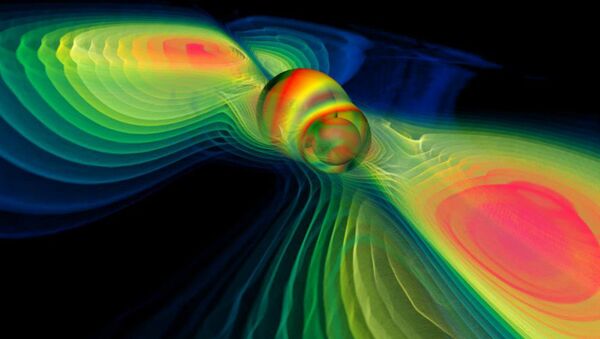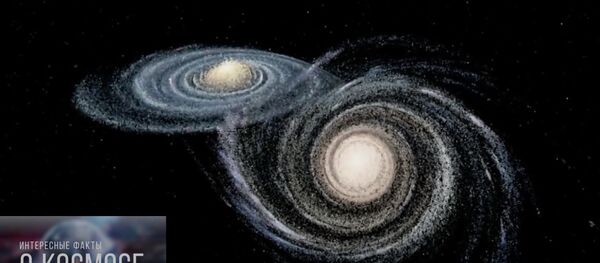An experiment to detect gravitational waves may have succeeded, according to rumors circulating on social networks on Tuesday.
My earlier rumor about LIGO has been confirmed by independent sources. Stay tuned! Gravitational waves may have been discovered!! Exciting.
— Lawrence M. Krauss (@LKrauss1) 11 января 2016
ALIENS: "Are you sure they're ready?" BOWIE: "Yes, my time among them is complete. Allow them the secret of gravitational waves."
— John Rogers (@jonrog1) 12 января 2016
The Laser Interferometer Gravitational-Wave Observatory (LIGO) at the California Institute of Technology was completed in 1999, and first began searching, unsuccessfully, for gravitational waves in 2002.
On September 18 2015 the observatory undertook the first official, three month 'observing run' of its advanced detectors. Immediately, before any fine-tuning, the detectors could listen for gravitational waves from as far away as 225 million light years, already three times more sensitive than the initial LIGO was by the end of its observational lifetime in 2010.
Gravitational waves are vibrations of space–time generated by the acceleration of all forms of mass and energy. Their existence is one of the key predictions of Einstein's General Theory of Relativity, published in 1916.
How Einstein wavered on the question of whether or not gravitational waves exist: https://t.co/VdLtxyFcPU #LIGO pic.twitter.com/HCb5he28A5
— Paul Halpern (@phalpern) 12 января 2016
"Since gravitational waves allow us to study the universe with a new form of energy that couples to everything, gravitational-wave detectors may also lead to totally unexpected discoveries – as did the telescope and the microscope in their times," explains Craig Hogan, Professor of Astronomy and Physics at the University of Chicago.
What are Gravitational Waves? Watch this video: https://t.co/zVjhKagFVX #Space pic.twitter.com/T3b5qkTzRg
— Check123 (@check123com) 11 января 2016
"Moreover, gravitational waves provide a detailed record of events that took place in the first second or so of the universe, which should allow us to constrain models such as cosmic inflation and other extreme and uncharted physics of the early universe."




